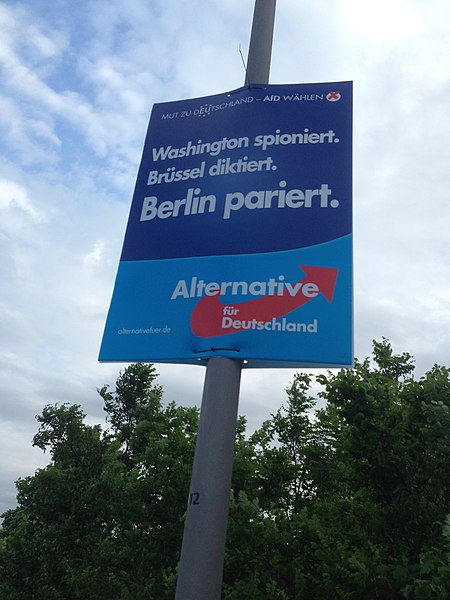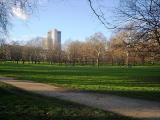
A heated debate is underway in Germany regarding the potential banning of the far-right Alternative for Germany (AfD) party, following revelations that senior members participated in a
meeting where mass deportations were allegedly discussed.
The bombshell report, released by investigative outlet Correctiv, detailed a "secret" gathering near Berlin in November involving around 20 individuals, including high-ranking AfD figures and neo-Nazi influencers. The discussion purportedly centered around "remigration," involving the removal of millions of asylum seekers and individuals with "non-German" backgrounds, even those with residency rights and citizenship.
The AfD, currently polling second nationally, has vehemently denied any wrongdoing, claiming it is the target of unfair accusations. AfD MP Bernd Baumann addressed politicians from the ruling coalition parties, stating, "Panic is spreading. We can smell your fear."
Despite the AfD's defense, the revelations have triggered significant public backlash, leading to large protests in Berlin, Cologne, and Hamburg. Over 50,000 people gathered in Hamburg on Friday, where Mayor Peter Tschentscher delivered a resolute message to the AfD, declaring unity against any threat to the country and democracy.
Chancellor Olaf Scholz expressed gratitude for the tens of thousands of protesters, warning against any expulsion plan, which he deemed an "attack against our democracy and in turn on all of us."
The AfD leadership has adopted a combative stance, emphasizing that the meeting was private and not organized by the party. Co-leader Alice Weidel distanced the party from the controversy while condemning calls for a ban as "scandalous."
However, internal divisions have surfaced, with Weidel parting ways with her senior aide, Roland Hartwig, who attended the contentious meeting. Austrian far-right activist Martin Sellner, alleged to have presented a mass deportation "masterplan," has added another layer to the controversy.
Despite calls from 25 Social Democratic Bundestag members for an examination of a ban, skepticism persists among legal and political circles. Constitutional lawyer Dr. Horst Meier argued against a ban, stating that political competition should occur on the political stage rather than in court.
The German constitution allows the prohibition of parties that seek to undermine the "free democratic basic order." While two parties were dissolved in 1950s West Germany, subsequent attempts, notably against the neo-Nazi NPD, failed.
Vice Chancellor Robert Habeck's accusations against the AfD and cautious support for a ban have ignited further debate. However, politicians like Thorsten Frei from the CDU urged a different approach, emphasizing the need to understand the reasons behind the AfD's popularity rather than insulting voters.
The AfD, enjoying record success in polls, is poised for significant electoral gains, making any pursuit of a ban a politically and legally challenging endeavor. Interior Minister Nancy Faeser has pledged to "use all instruments available" to defend democracy, but a party ban remains a last resort. The AfD, already under surveillance and classified as a right-wing extremist organization in certain states, denies racism but faces increasing scrutiny and criticism in the wake of the scandal. Photo by Taibhseoir, Wikimedia commons.







































